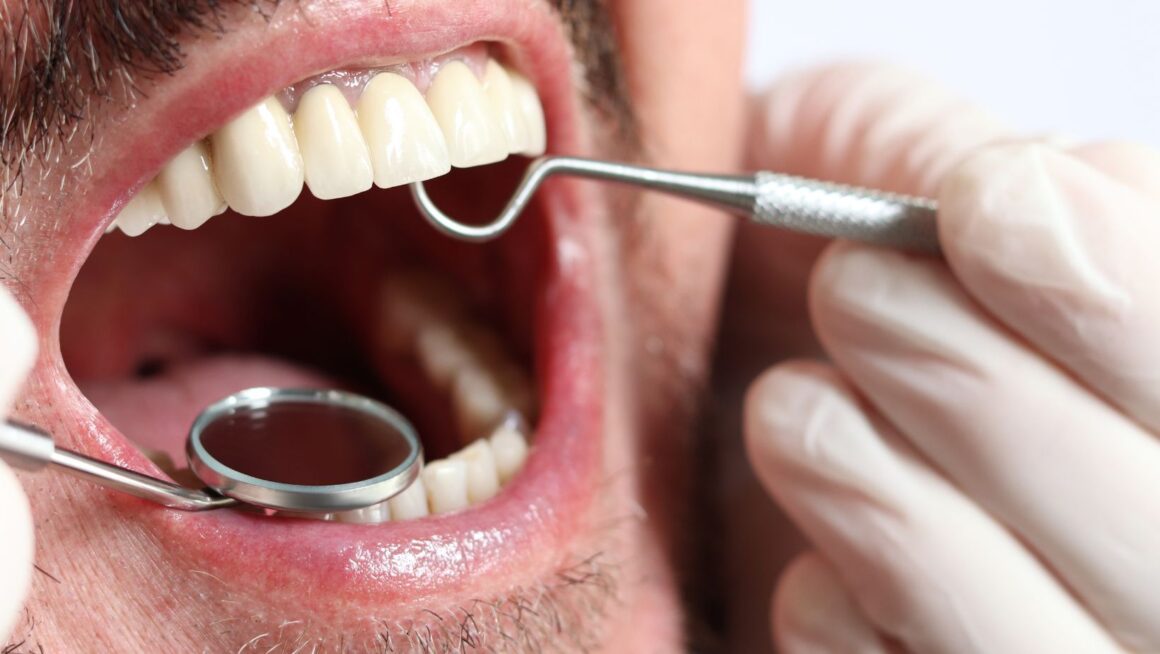
Brushing your teeth is essential for maintaining good oral health, but doing it too often or too aggressively can actually cause harm. Brushing your teeth too frequently or with too much pressure can wear down enamel, lead to receding gums, and create tooth sensitivity. Understanding the balance helps you protect your teeth without causing damage.
You might think more brushing means cleaner teeth, but overbrushing can lead to issues like toothbrush abrasion—a condition where enamel and gum tissue are worn away. It’s not just how often you brush, but also how you brush that matters. Using the wrong technique or a hard-bristled toothbrush can increase harm even if you’re brushing within the recommended frequency.
Knowing when and how to brush correctly can prevent these problems and keep your mouth healthy. This article will guide you through what overbrushing looks like, its risks, and how to avoid making your oral care routine counterproductive.
Why Brushing Too Often Can Be Harmful
Brushing your teeth excessively can lead to damage beyond just worn-out toothbrush bristles. It affects the protective layers of your teeth and the surrounding gums, increasing sensitivity and risk of decay. Understanding these specific harms will help you manage your oral health better.
Tooth Enamel Erosion from Overbrushing
Your tooth enamel is the hard, outer layer that protects teeth from decay. When you brush too often or with too much pressure, you wear down this enamel over time. This gradual erosion exposes the softer dentin underneath, which is more vulnerable to damage.
Enamel erosion doesn’t just weaken your teeth visually; it also increases the risk of cavities. Once enamel is lost, it cannot regenerate naturally, so prevention is crucial. Acidic foods and drinks combined with immediate brushing can worsen enamel damage, as acids soften the enamel, making brushing abrasive.
Gum Recession and Sensitive Teeth
Overbrushing can cause your gums to recede, pulling away from the tooth surface. This exposes the tooth roots that lack enamel and are covered only by a thin layer called cementum, which wears away quickly. When your gums recede, tooth sensitivity usually increases, especially to hot, cold, or sweet stimuli.
Gum recession also leaves your teeth vulnerable to decay and potential infections. You might notice small notches or grooves near the gum line, which are signs of damage from improper brushing habits. Once gums recede, they rarely return to their previous state without professional treatment.
Risks to Tooth Structure
Excessive brushing can create physical damage to your teeth, such as grooves, chips, or cracks. These structural issues weaken your teeth’s foundation and increase their chance of breaking under pressure. You might not see immediate damage, but chronic overbrushing will wear down your teeth’s surfaces.
In addition to enamel loss and gum problems, the mechanical force from overbrushing can cause tooth abrasion, evident as shiny, worn spots. This abrasion can lead to discomfort and increased likelihood of cavities. Using a soft-bristled toothbrush and gentle, circular motions helps protect your tooth structure from these risks.

Signs You Are Brushing Too Frequently
Brushing too often or with excessive force can cause visible and physical changes in your mouth. These signs warn you that your routine might be damaging your gums and teeth instead of protecting them.
Bleeding or Irritated Gums
If you notice your gums bleed regularly during brushing, it’s likely you’re applying too much pressure or brushing too frequently. Healthy gums rarely bleed when stimulated gently.
Persistent bleeding or redness can indicate gum irritation or early gum recession caused by aggressive brushing. This can increase your risk of gum disease if left uncorrected.
Use a soft-bristled toothbrush and lighten your brushing pressure to minimize trauma. If bleeding continues, consult your dentist in Evansville, IN for an assessment and tailored advice.
Notches or Grooves Near the Gumline
Too much brushing or incorrect technique often results in visible notches or grooves along the gumline on your teeth. These areas appear as small indentations or worn spots.
This enamel loss near the gums is due to enamel abrasion caused by repeated friction. Unlike enamel, these areas don’t regenerate, exposing sensitive dentin.
Such damage usually signals overbrushing, which also contributes to gum recession. Adjusting your technique to gentle, circular motions and reducing frequency can help prevent further wear.
Frayed Toothbrush Bristles
If the bristles of your toothbrush splay out or wear down quickly—much sooner than the recommended three-month replacement—it usually means you’re brushing too hard.
Overbrushing damages not just your teeth but also your brush, rendering it less effective at cleaning. A frayed brush cannot reach plaque properly and may irritate your gums.
Inspect your toothbrush regularly. If it shows early signs of wear, switch to a softer brush and ease your grip to reduce unnecessary force on your teeth and gums.
How to Brush Safely for Optimal Oral Health
To care for your teeth effectively, you need to use the proper tools, brush at the right times, and apply the correct technique. Attention to these details protects your enamel, removes plaque, and supports gum health without causing damage.
Choosing the Right Toothbrush and Toothpaste
Select a soft-bristled toothbrush to avoid wearing down enamel and irritating your gums. Hard-bristled brushes can be too abrasive and cause enamel erosion over time. If you have trouble gripping a brush or suffer from arthritis, consider an electric toothbrush for easier use and more consistent brushing.
Use fluoride toothpaste to help strengthen your enamel and prevent cavities. Avoid toothpastes labeled as highly abrasive since they can damage tooth surfaces, especially if you brush frequently. Replace your toothbrush every three to four months, or sooner if the bristles become frayed, to maintain cleaning effectiveness.
Correct Brushing Frequency and Timing
Brush twice a day for two minutes each time, as recommended by the American Dental Association. Brushing more than this can wear down enamel and gums, especially with improper technique. Avoid brushing immediately after meals or acidic drinks like soda or citrus juices. Acid softens enamel, and brushing too soon can cause enamel loss.
Wait at least one hour after consuming acidic foods or beverages before brushing. This pause allows your saliva to neutralize acids and reharden enamel, reducing damage risk.
Importance of Gentle Brushing Technique
Apply gentle, circular motions rather than hard scrubbing. Pressing too hard can wear away enamel and injure your gums. Keep your toothbrush at a 45-degree angle to your gum line to clean effectively without causing harm.
Focus on all tooth surfaces: outer, inner, and chewing areas. Use light pressure and let the bristles do the work. Avoid aggressive back-and-forth motions, which are the main cause of gum recession and enamel erosion.
Incorporating these steps into your oral hygiene routine ensures you maintain healthy teeth and gums without risking damage from overbrushing.
Comprehensive Oral Hygiene Beyond Brushing
Maintaining oral health requires more than just brushing your teeth. Addressing factors like flossing, diet, and regular dental visits plays a critical role in preventing cavities, plaque buildup, and gum disease. Each aspect supports your overall oral care routine and protects your teeth and gums effectively.
Role of Flossing and Mouth Rinsing
Flossing daily is essential to remove plaque and food particles between teeth where your toothbrush can’t reach. Neglecting to floss allows plaque to accumulate, increasing the risk of cavities and gingivitis. Using floss correctly helps prevent gum inflammation and maintains healthier gums over time.
In addition to flossing, rinsing your mouth with water or an antimicrobial mouthwash after meals can reduce bacteria and neutralize acids. This helps protect your enamel from erosion and supports saliva’s natural role in washing away debris. For added defense, fluoride varnish treatments recommended by your dentist can strengthen enamel and guard against tooth decay.
Impact of Diet and Acidic Foods
Your diet directly affects your oral health. Frequent consumption of acidic foods and drinks like soda, fruit juices, and wine can erode tooth enamel, making teeth more vulnerable to decay. It’s best to wait at least an hour after eating or drinking acidic substances before brushing to allow your enamel to re-harden.
Limiting added sugars reduces plaque formation, which is a major contributor to cavities. Drinking water throughout the day helps rinse away sugars and acids, maintaining saliva flow that protects your teeth naturally. Balancing acidic food intake with non-acidic, nutrient-rich options supports stronger teeth and healthier gums.
Seeing Your Dentist Regularly
Regular dental visits are crucial for identifying and treating oral health issues before they worsen. Your dentist will check for early signs of cavities, plaque buildup, and gum disease, such as gingivitis, which can lead to more serious problems if untreated.
Professional cleanings remove hardened plaque that brushing and flossing cannot eliminate. In some cases, your dentist might apply fluoride varnish to strengthen enamel or recommend treatments like gum grafting surgery to repair gum recession. Scheduling exams every six months helps keep your oral care routine on track and prevents costly or painful complications.
Frequently Asked Questions
Proper brushing frequency and technique are crucial for maintaining oral health without causing damage. Understanding how often and how long you should brush helps prevent problems like enamel wear and gum recession.
Can brushing my teeth three times daily cause any harm?
Brushing three times a day is generally safe if done with gentle pressure and a soft-bristled toothbrush. The risk of harm arises mainly from aggressive brushing or using hard bristles rather than frequency alone.
What are potential effects of brushing teeth four times per day?
Brushing four times a day increases the chance of enamel erosion and gum irritation, especially if you use excessive force. Too frequent brushing may wear down tooth enamel and cause gum recession over time.
How can I identify symptoms that indicate I’m brushing my teeth excessively?
Look for increased tooth sensitivity, receding gums, yellowing teeth, notches near the gum line, and bleeding or irritated gums. Flattened or splayed toothbrush bristles after short use also signal excessive pressure or frequency.
Are there negative consequences to brushing teeth five times in a day?
Brushing five times daily can significantly increase enamel wear and gum damage unless you use a very gentle technique and appropriate tools. Over-brushing at this frequency often does more harm than good.
Is brushing my teeth for longer than two minutes per session harmful?
Brushing longer than two minutes isn’t usually beneficial and can contribute to enamel abrasion if done aggressively. A two-minute, twice-daily routine with soft bristles is sufficient for effective cleaning.
What are the risks associated with brushing teeth less than twice a day?
Brushing fewer than twice a day can lead to plaque buildup, increasing the risk of cavities and gum disease. Consistent removal of plaque at least twice daily is recommended to maintain healthy teeth and gums.














